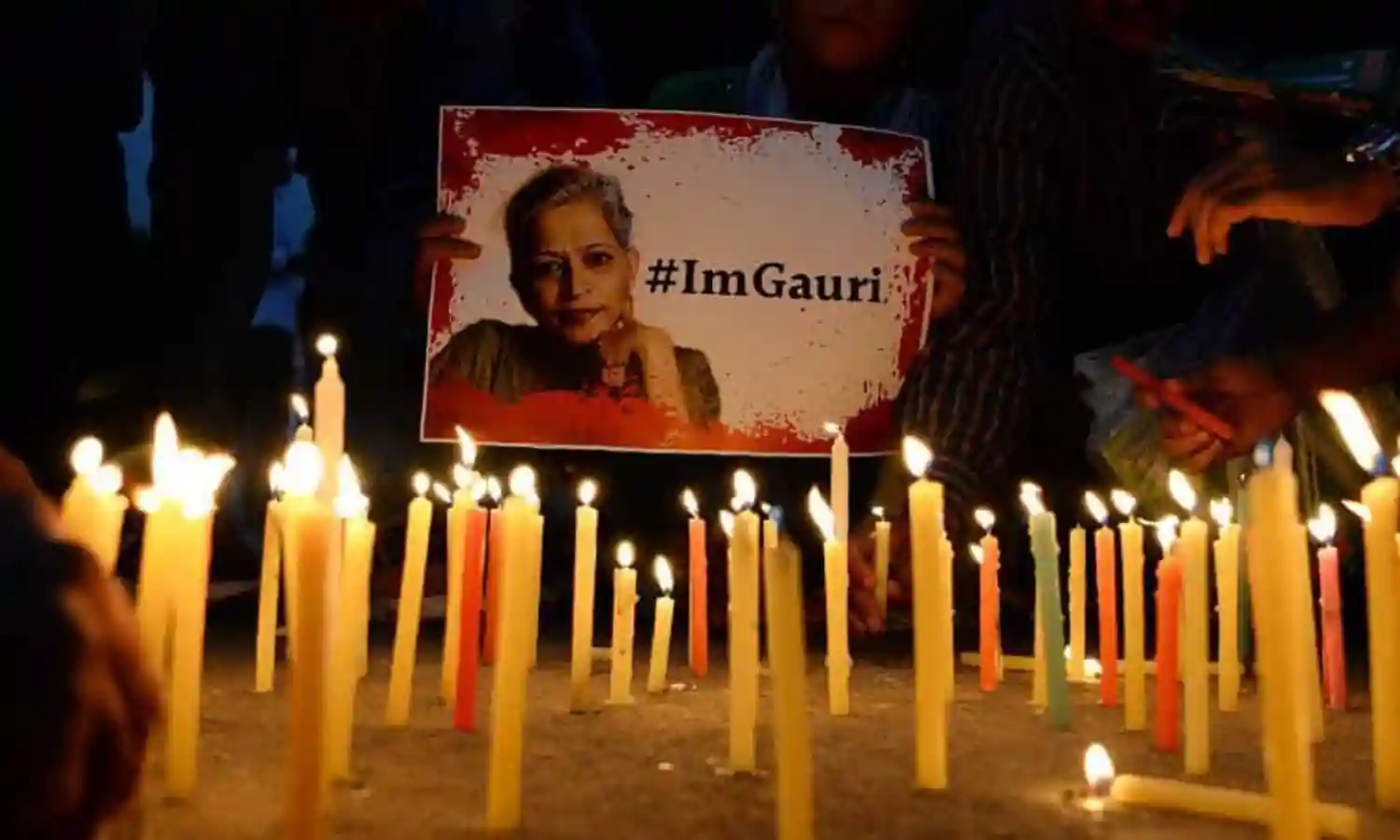One Year Since Gauri Lankesh's Assassination: Independent Journalism in Peril
In memory

RANCHI: On the evening of September 5, 2017 as I scrolled through pictures of our Teachers' Day celebrations, I got a call from one of my friends. “Gauri Lankesh is no more,” he said. I couldn’t believe my ears. I asked him furiously if he knew what he was saying. To make me believe this unacceptable fact, he repeated that Lankesh had been shot dead outside her house.
Gauri Lankesh, a prominent Indian journalist who epitomised strength and valour and was known for her fearlessness and outspoken nature, had been killed. As per newspaper reports Lankesh was shot three times at close range by unidentified men around 8 pm at the entrance of her house in Rajarajeshwari Nagar.
Gauri Lankesh was the true face of Indian journalism. Her strength of personality and charisma left a deep impression on me. The way she raised her voice and opinions, how she resisted, and her courage was something I always wanted to imbibe as a journalist.
Lankesh staunchly supported the view that religious politics would destroy India entirely. She was a hard critic of the Hindu right wing. In an interview with Narada News she openly criticises the Bharatiya Janata Party's ‘fascist and communal politics’, saying, ‘My Constitution teaches me to be a secular citizen, not communal. It is my right to fight against these communal elements.’
She was a social activist and campaigned for the rights of Dalits. She was the complete package, a rational, strong and courageous woman; everything the torch bearers of communal politics hate. Throughout her life she advocated the freedom of press, and the gunmen who shot her ‘probably killed her for her works’.
Lankesh was not the only one who challenged and shook the authority of majoritarian politics. Her murder follows several assassinations of persons like her in recent years, including renowned scholar M.M. Kalburgi, anti-superstition activist Narendra Dabholkar and author-politician Govind Pansare. Nor did Lankesh’s murder bring a halt to this series of outrageous incidents. Several other renowned journalists such as Santanu Bhowmick and Shujaat Bukhari have been brutally murdered in the past year ‘just for doing what they are supposed to do’.
The Press Council of India's report titled Safety of Journalists states that more than 80 journalists have been killed in India since 1990. According to a report published by the media-watch website The Hoot, at least 54 journalists were attacked between January 2016 and April 2017. News of these incessant murders comes as a devastating blow to the entire nation, and once again brings the need to introspect about the freedom of expression denied the ‘fourth pillar of democracy’. Such targeted violence puts a huge question mark on reporting standards and press freedom in India.
The Indian media is frequently criticised for its declining standards, its embittered coverage of governmental issues and the spewing forth of online trends as primetime news. Celebrity affairs and link-ups substitute for serious issues like the beef ban, the crisis in Kashmir, or the conditions of farmers. The major news channels are making soap operas out of news stories. On one hand, the quality of coverage in India is continuously deteriorating, and on the other India still lags behind the rest of the world in terms of press freedom.
The 2017 World Press Freedom Index by Reporters Without Borders positions India at 136 out of 180 nations. Such a rank is really shameful for one of the planet’s biggest democracies which promises its citizens the right to put forth their views. One wishes the administration appeared as sincere in enhancing India's position on the Press Freedom Index as they do towards the World Bank's Ease of Doing Business rankings.
But journalism, today, has turned into a pro-government practice. It has lost its core essence, and is under serious threat. Media professionals should act as mediators between the power and the public, but nowadays the mainstream media’s independence is under question, as they have become mere spokespersons of the government. Journalists who refuse to play this role and turn from such practices have no alternative other than losing their lives.
The media, today, insists on viewing the actions of citizens through the nationalist spectacle, terming all those who question government policy ‘anti-national’. The basic, fundamental right to express our views is being hampered and journalists have become the puppets in the hands of the government or big business. There is no place for daring journalists like Gauri Lankesh in today’s journalism.
(Bhavna Jha is a student based in Ranchi, Jharkhand)


